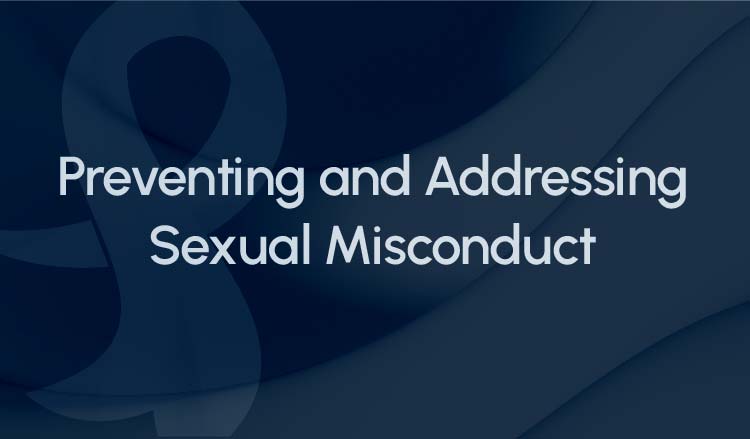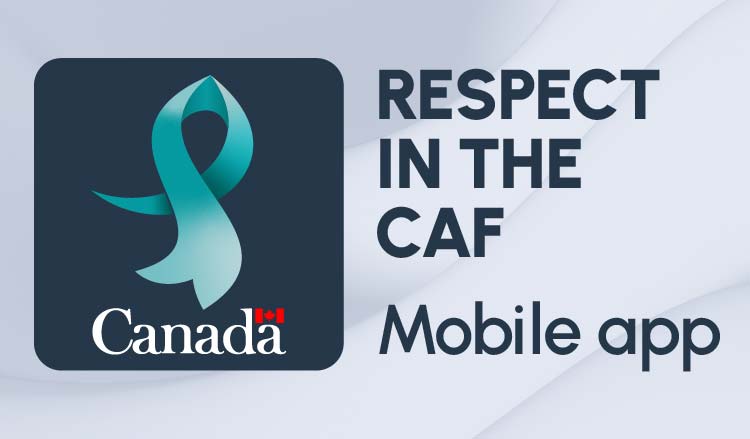Victims and Survivors of Service Offences
Victims and Survivors of service offences find support within Canada’s military justice system.
Canada’s military justice system is a separate and parallel system of justice that forms an integral part of the Canadian legal system. It shares many of the same underlying principles as the civilian criminal justice system and is subject to the Canadian Charter of Rights and Freedoms.
The military justice system is designed to promote the operational effectiveness of the Canadian Armed Forces by contributing to the maintenance of discipline, efficiency, and morale, while ensuring that justice is administered fairly and with respect to the rule of law.
The military justice system can be unfamiliar and possibly intimidating to some victims and survivors. This is why it is important that victims and survivors of service offences have access to information about the military justice system, their role within it and the resources available to support them. This web page aims to provide victims and survivors with general information, links to resources and points of contact should they have questions or want to know more.
Coming into force of Bill C-77
The coming into force of, An Act to amend the National Defence Act and to make related and consequential amendments to other Acts (Bill C-77) on 20 June 2022 has profoundly transformed the military justice system.
Bill C-77 has strengthened the military justice system and aligned it further with the civilian criminal justice system while respecting the unique requirements of the Canadian Armed Forces.
Bill C-77 has also introduced the Declaration of Victims Rights (DVR) to the Code of Service Discipline, establishing rights for victims of service offences within the military justice system. The DVR gives victims of service offences rights to information, protection, participation and restitution. These rights mirror those found in the Canadian Victims Bill of Rights (CVBR).
An overview of the changes brought by Bill C-77 can be found here: Enhancing Victims’ Rights in the Military Justice System: An Act to amend the National Defence Act and to make related and consequential amendments to other Acts (Bill C-77).
Victim of a service offence
On this web page, the term victim will be used, but it is recognized that an individual may define their own context and experience differently and may not recognize themselves as a victim. On this web page, the concept of survivor may also be included in the concept of victim, when the term is not being used in a legal or policy context.
Victim
A new definition of victim is introduced to the National Defence Act by Bill C-77. The full definition appears at section 2(1.1). In plain language, a victim under the Declaration of Victims Rights is:
an individual against whom a service offence has been committed, or is alleged to have been committed, who has suffered, or is alleged to have suffered, physical or emotional harm, property damage or economic loss as a result of the commission or alleged commission of a service offence.
For the purposes of accessing rights under the DVR, the definition of victim also includes persons other than the immediate victim who have also suffered harm, loss or damages as a result of the commission or alleged commission of the offence.
For more information, see the National Defence Act, section 2(1.1).
The Victim’s Liaison Officer
Given the separate and unique nature of the military justice system, the DVR provides for the appointment of a Victim’s Liaison Officer (VLO) at the request of the victim. The VLO will assist the victim by explaining how service offences are charged, dealt with and tried and will obtain and transmit to the victim any information relating to the service offence that the victim has requested and has a right to access.
For more information, please see the Victim’s Liaison Officer page.
Contents
The Right to Information
The Right to Protection
The Right to Participation
The Right to Restitution
Complaint
The Victim’s Liaison Officer
Provide feedback
Links and Resources

Latest News
- SMSRC Community Information Sessions
- Sexual Misconduct Support and Resource Centre expands support services to family members of the Defence Team including both traditional and non-traditional families and other close personal relations as well as Cadets and Junior Canadian Rangers
2023-05-29 - Join the first SMSRC Community Consultation Group for People Affected by Sexual Misconduct
2023-05-19 - Defence Minister Anita Anand releases first biannual status report of the External Monitor
2023-05-17
Features

Mental health. You're not alone
Medical and mental health care, emergency contacts, support for you and your family.

Sexual misconduct in the CAF
Learn about sexual misconduct and how the Defence Team is addressing it.

Conduct and Culture Change
Efforts to address systemic misconduct and advance culture change for Canada’s Defence Team.

Respect in the CAF mobile app
Download the Respect in the Canadian Armed Forces mobile application.